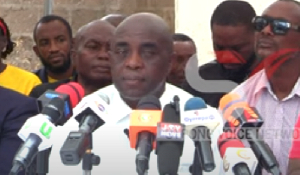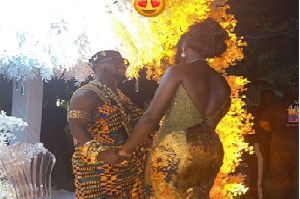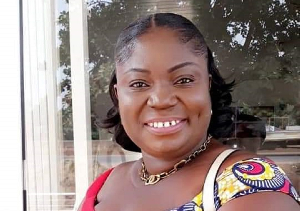Business News of Wednesday, 19 April 2017
Source: thebftonline.com
Social Media Index of Banks in Ghana (Part 2)
The emergence of social media has disrupted how organizations reach out to their consumer/ customers and the public in general. Facebook, the leading social media platform, has more than 1.87 billion users, not to talk of Whatsapp, Twitter, Youtube also posting hundreds of millions of subscribers or users.
Just like many industries, social media presents opportunities for banks to generate meaningful connections with customers and members, attract desirable consumers and achieve ongoing business initiatives.
According to the Bank of Ghana, there are 33 commercial banks operating in the country. These relatively high number of banks has made the industry a fiercely contested one where banks fall over themselves to attract customers.
The emergence of social media presents an opportunity where these banks can market their products and services to their audience as well Rank themselves to take real-time feedback from their audience as well.
Gone were the days that customer service typically involved a face-to-face like conversation with customer service personnel to have concerns addressed. In 2016, the multiplicity of social media platforms mean that organizations and in this case banks, have to be proactive in responding to queries or communicating products via these platforms.
But before one can measure the usefulness of social media for banks, it will be appropriate to first gauge their presence on these platforms. And with the widespread of fraud especially via identity theft, it is increasingly important for banks to pursue measures that limit these vices.
Aware of identity theft, social media platforms like Facebook, Twitter, and Instagram among others use the verification system to indicate genuine accounts from counterfeited or parody accounts.
A verified social media account would have a blue checkmark that lets people know that an account of public interest is authentic.
Methodology
This social media index looks at the presence of banks on Facebook, Instagram and Twitter. This index also incorporates whether the banks have been verified on Facebook and Twitter. Although Instagram allows verification of accounts, this index did not include that.
On Facebook, the key measure was the number of ‘likes’ these banks have and on Twitter their ‘followers’ was also measured. The measurement of these key indicators was taken on Wednesday, April 5, 2017.
The total number of “likes” and “followers” is computed and weighed against other banks to rank these banks in terms of which of them has a stronger presence via huge followership on these three social media platforms.
In all, all 33 commercial banks were included in this index.
Key findings
The analysis showed that these banks, put together, have a total of 2,003,126 ‘likes’ on Facebook, which happens to be the most popular among the banks judging by the numbers. Only four (4) out of the 33 banks have been verified by Facebook as being authentic accounts. On Twitter, the banks combined have 140, 009 followers. Only two banks have been verified by Twitter. On Instagram, the total followers by all the banks was 53,535.
Rankings cont’d from last week
Rank 20
Bank: Energy Bank
Facebook: 8,242 (Not verified)
Twitter: 288 (Not verified)
Instagram: 403
Energy Bank Ghana, incorporated in September 2009, maintains an active presence on Facebook; posting about its products and services as well as making posts about social issues to drive engagement. Its largest social media platform is Facebook followed by Instagram and Twitter.
Rank: 19
Bank: Societe Generale
Facebook: 10,846 (Not verified)
Twitter: 105 (Not verified)
Instagram: 0
Societe Generale headquartered in Kokomlemle, Accra has close to about 11,000 likes on Facebook where it last posted on March 30, this year. The account is predominantly used for showcasing its products, services etc. On Twitter, @SGGHBank has 105 followers and has about 204 tweets in all. On Instagram, search for “Societe Generale Ghana” did not show up any page.
Rank: 18
Bank: UBA
Facebook: 20,913 (Not verified)
Twitter: 2,656 (Not verified)
Instagram: 131
UBA is part of the Nigerian contingent of banks operating in the country. The bank’s Facebook page is awashed with activities/ posts that suggests active engagement. On Twitter, the bank has two handles, @UBAGhanaLtd and @ubaghana. But the more active of the two has 2,656 followers with the other account last tweeting in 2011.
The Instagram page which has 131 followers last had a post on November 4, last year congratulating farmers.
Rank: 17
Bank: HFC
Facebook: 24,254 (Not verified)
Twitter: 125 (Not verified)
Instagram: 75
HFC Bank (Ghana) Limited is a subsidiary of Republic Bank Limited of Trinidad & Tobago. Founded in 1990, the bank is strong on Facebook than any of the other two platforms used for this index. With Facebook likes exceeding 24,000, the bank cannot boast of similar numbers on Twitter and further worse off on Instagram. None of its two accounts has been verified just like its parent bank @republicbanktt (Twitter).
Rank: 16
Bank: uniBank
Facebook: 40,804 (Not verified)
Twitter: 7,720 (Not verified)
Instagram: 973
uniBank was incorporated in 1997 as a financial services provider. Following the issuance of a banking license, the bank began providing banking services in January 2001. The bank is considered one of the largest in the country in terms of assets. The Facebook page of the indigenous bank has a little over of 40,000 likes. Its Twitter @uniBankGhana has more than 7,700 followers and the Instagram account racking up a little less than 1,000 followers.
Rank: 15
Bank: CAL Bank
Facebook: 57, 928 (Not verified)
Twitter: 2,708 (Not verified)
Instagram: 0
CAL Bank commands a decent presence on Facebook where it has an excess of 57,000 likes. The page also maintains regular posts to sell its products and services as well as to engage its audience. On Twitter, @CALBankLtd has 2,708 followers and has over 1,000 tweets in the process. On Instagram, using “CAL Bank Ghana” to query the portal did not show any account of the bank.
Rank: 14
Bank: GCB
Facebook: 61,549 (Not verified)
Twitter: 2 (Not verified)
Instagram: 54
From the numbers, clearly it is visible that GCB Bank’s social media presence is heavily focused on Facebook, if not solely. With 61,549 likes, the bank could only boast of 2 followers tweeting @gcbbankgh. On Instagram, @gcbbankltd hs never posted a photo to its 54 followers.
Rank: 13
Bank: Standard Chartered
Facebook: 63, 350 (Verified)
Twitter: 8 (Not verified)
Instagram: 0
StanChart Ghana is one of the few banks that have received verification from Facebook. Founded in 1896, the bank happens to be one of the oldest companies in Ghana. Despite achieving the verified status on Facebook, on Twitter @StanChartGhana has just 8 followers on its dormant account which last tweeted in 2014. When “StanChart Ghana” or “Standard Chartered Ghana” was searched on Instagram, the results were null.
Rank: 12
Bank: First Atlantic
Facebook: 65,426 (Not verified)
Twitter: 3,330 (Not verified)
Instagram: 10
Originally founded as a merchant bank, First Atlantic Bank, in 2011 became a universal bank. The “Purple” bank has since then garnered over 65,000 likes on Facebook, more than 3,300 followers on Twitter where it tweets @FirstAtlanticGH and 10 followers on Instagram with a single post to show.
Rank: 11
Bank: NIB
Facebook: 71,057 (Not verified)
Twitter: 1,358 (Not verified)
Instagram: 1,453
The National Investment Bank (NIB) was founded in 1963 and was Ghana’s first development bank although it now has a universal banking license from the central bank. The bank’s Facebook page has more than 71,000 likes and the page continually pushes content that relates to its products and services as well as interesting social issues to drive engagement on it page. On Twitter, @nibghana has 1,358 followers and its Instagram page has 1,453 followers.
Rank: 10
Bank: OmniBank
Facebook: 72, 574 (Not verified)
Twitter: 15,641 (Not verified)
Instagram: 371
Omni Bank used to be Union Savings and Loans till it was granted universal banking license by the central bank in July 2016. After being in operation for barely a year, the Facebook page of the bank boasts of 72, 574 likes and the Twitter page, @OmniBankGH, commanding in excess of 15, 000 followers whereas the Instagram page has 371 followers.
Rank: 9
Bank: Barclays
Facebook: 93,499 (Verified)
Twitter: 4,202 (Not verified)
Instagram: 45
One of the oldest banks in Ghana, Barclays Bank Ghana has had its Facebook page verified. The page has over 93,000 likes. The twitter handle, @BarclaysGhana which tweets often also has over 4,200 followers. The bank’s Instagram page has just 45 followers and has no posts to show.
Rank: 8
Bank: Universal Merchant Bank (UMB)
Facebook: 95,574 (Not verified)
Twitter: 547 (Not verified)
Instagram: 2,609
Universal Merchant Bank (UMB), formerly called Merchant Bank, is one of the indigenous banks operating in the country. It rebranded to UMB in 2014 and has used social media as one of its strategies of achieving visibility and promoting its offering. The bank has over 95,000 likes on Facebook and its handle on Twitter, @myumbbank, is followed by some 547 people. On Instagram, the bank has over 2,600 followers.
Rank: 7
Bank: ADB
Facebook: 127,434 (Verified)
Twitter: 10,877 (Not verified) Instagram: 1,965
Agricultural Development Bank, adb, commenced as financial institution with particular focus on agric, agro-processing and other related sectors. But the bank along the way transformed into a universal bank and began offering retail banking services among others. The bank in 2014 rebranded to reposition its image and it is obvious social media has played a role in that process. On Facebook, the bank has over 127,000 likes and its page also verified. On twitter, @adb_Ghana, has more than 10,800 followers while the Instagram page has 1,965 followers.
Rank: 6
Bank: Capital Bank
Facebook: 109,932 (Not verified)
Twitter: 32,584 (Verified)
Instagram: 2,857
Capital Bank is one of the indigenous banks operating under its name since 2015 when it rebranded from First Capital Plus Bank. The bank has undergone transformation from microfinance to savings and loans, and to a universal bank within a spate of eight years. On Facebook, the bank has more than 109,000 likes and its Twitter handle, @CapitalBankGH, has been verified and command over 32, 000 followers, the highest among all the banks. On Instagram, the bank has close to 3,000 followers.
Rank: 5
Bank: GT Bank
Facebook: 139, 386 (Not verified)
Twitter: 4,360 (Not verified)
Instagram: 1,598
Guaranty Trust (GT) Bank identifies itself as one of the banks that deploys technology to make banking convenient to its customers. It has several awards to show with the latest, and the third year running, being the “Technology Advanced Bank of the Year 2016” at the Ghana Information Technology and Telecom Awards 2016.
The bank maintains a Facebook community that has in excess of 130, 000 likes and its Twitter handle, @GTBankGhana also commanding followership of more than 4,300 and an Instagram page with 1,598 followers.
Rank: 4
Bank: Stanbic
Facebook: 155,325 (Not verified)
Twitter: 2,873 (Not verified)
Instagram: 7,206
Stanbic bank is a subsidiary of the Standard Bank of South Africa. The bank was established in 1999 and is one of the banks heavily focused on technology that makes banking seamless. The bank also relies on its social platforms to showcase their offering. Its Facebook community has more than 155,000 members where as its Twitter handle, @StanbicBankGH, possesses about 3,000 followers. Its Instagram account has in excess of 7, 200 followers.
Rank: 3
Bank: UT Bank
Facebook: 232,553 (Verified)
Twitter: 8,142 (Not verified)
Instagram: 8,709
UT Bank is one of the two indigenous banks that have had their Facebook page verified. The bank, since 1997, has undergone several transformation to become what it is today. Its Facebook page maintains active engagement whether through sharing posts on social issues or on its product and service offering. The bank Facebook page has more than 230,000 likes and its Twitter account, @UTBankLimited also has more than 8,000 followers. The Instagram page also possess close to 9,000 followers.
Rank: 2
Bank: Access Bank
Facebook: 244,099 (Not verified)
Twitter: 21,703 (Verified)
Instagram: 6,010
A member of Access Bank Group, Access Bank Ghana, has been operating in the country since 2009. The bank maintains heavy presence on social media where its posts are not limited to its services and products but also crafted to elicit engagement with its various communities. The bank’s Facebook page, with over 244, 000 likes comes second in this index and its Twitter handle, @AccessBankGhana, is one of two banks verified. The Twitter account is followed by about 22,000 people with the Instagram account having a little over 6,000 followers.
Rank: 1
Bank: Fidelity
Facebook: 289,010 (Not verified)
Twitter: 25,831 (Not verified)
Instagram: 19,745
On June 28, 2006, Fidelity Bank became the 22nd commercial bank in Ghana to be issued the Universal Banking License by the Bank of Ghana. The indigenous bank occupies the top spot of this social media index as its activities on the selected platforms have cumulatively generated the highest number of followership.
The bank’s deliberate social media approach has rewarded it with a following that it regularly engages via posts on social issues, the bank’s product and service offering, and any other issue. The bank, with 289,010 likes, is the most popular Ghanaian bank on Facebook, while its 19,745 followers on Instagram makes it the most popular on that platform by a mile.
Its Twitter following, 25,831, is only second best to Capital Bank which takes sixth place in this index.
Discussion
When social media started, it was just another place for old friends to meet and play catch-up and for others to meet new friends. It was largely informal but as the years went by, social media can no longer be considered to be informal especially for corporate entities that joined them.
For most organisations, social media became a channel for addressing customer issues as well as winning new customers.
For banks particularly, being on social media, especially the three leading platforms of Facebook, Twitter and Instagram, is nonnegotiable. And being on social media does not just end there, they must be active and proactive.
But the question of which social media platform to be on is one that will be addressed by a comprehensive social media strategy which every organisation that interfaces directly with customers must have.
For this index, Facebook, Twitter and Instagram were chosen because they were more popular among Ghanaians although other platforms also fairly enjoy usage. One of the advantages of a bank being active on social media is that it’s quickly able to address customer complaints without allowing them to fester or degenerate into PR crisis.
In this age of social media, it is common for people to take their share of bad experiences with banks on social media with their peers. And this singular act could lead to others repeating similar unpleasant experiences and thus leading to other would be customers forming similar impressions about the bank.
The fluidity of social media means that these complaints can be addressed in real time and customers assured of better service. Banks have thousands of customers and this would require a strong well-trained social media team to deal with complaints as and when they come in. Social media is a specialized communication tool so it is appropriate to have customer service personnel who handle them well-trained about its dos and dont’s and other etiquettes.
Most social media platforms recognsise that the issue of identity fraud is real and to prevent that proceeded to create the verification system. This system typically verifies accounts which are under threat of being duplicated by fraudsters. Under this system, banks, celebrities, public officials among others are largely favoured to be verified by these platforms.
On Twitter for instance, the verification process has been demystified and banks like other institutions that have such high accounts can now apply to be verified. The danger about not fighting for verification could see other fraudsters create a parody account in your bank’s name and since customers may not be able to differentiate between the two accounts may fall foul to the fraudsters and will turn around and blame the bank.
In general, banks are among the easier to be verified due to the nature of their operations and their high target by fraudsters. So banks operating in Ghana must take steps to ensure that their various social media accounts receive verification. Currently, this index shows that only four banks in Ghana have been verified by Facebook – Barclays, ADB, StanChart and UT Bank. And on Twitter, only two banks have been verified: Access Bank and Capital Bank.
The fact that the most active bank on social media as found out by this index, Fidelity, has not being verified by Twitter or Facebook, goes to say that being verified is not about numbers or followers. Banks must pursue the verification process and make a case for their verification, in most cases.
And one thing that emerged from this index was multiple accounts which show that some accounts were discontinued and when this happens, it is mostly due to the fact that login details were lost. But banks must ensure that creating social media account is not ad hoc but rather part of a greater communication plan which means these accounts are not lost from oversight and that the departure of the personnel in charge does not mean loss of the social media account.












